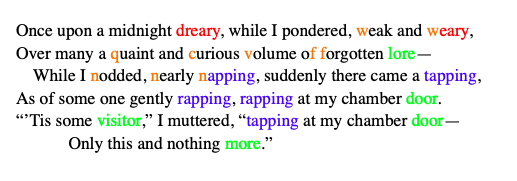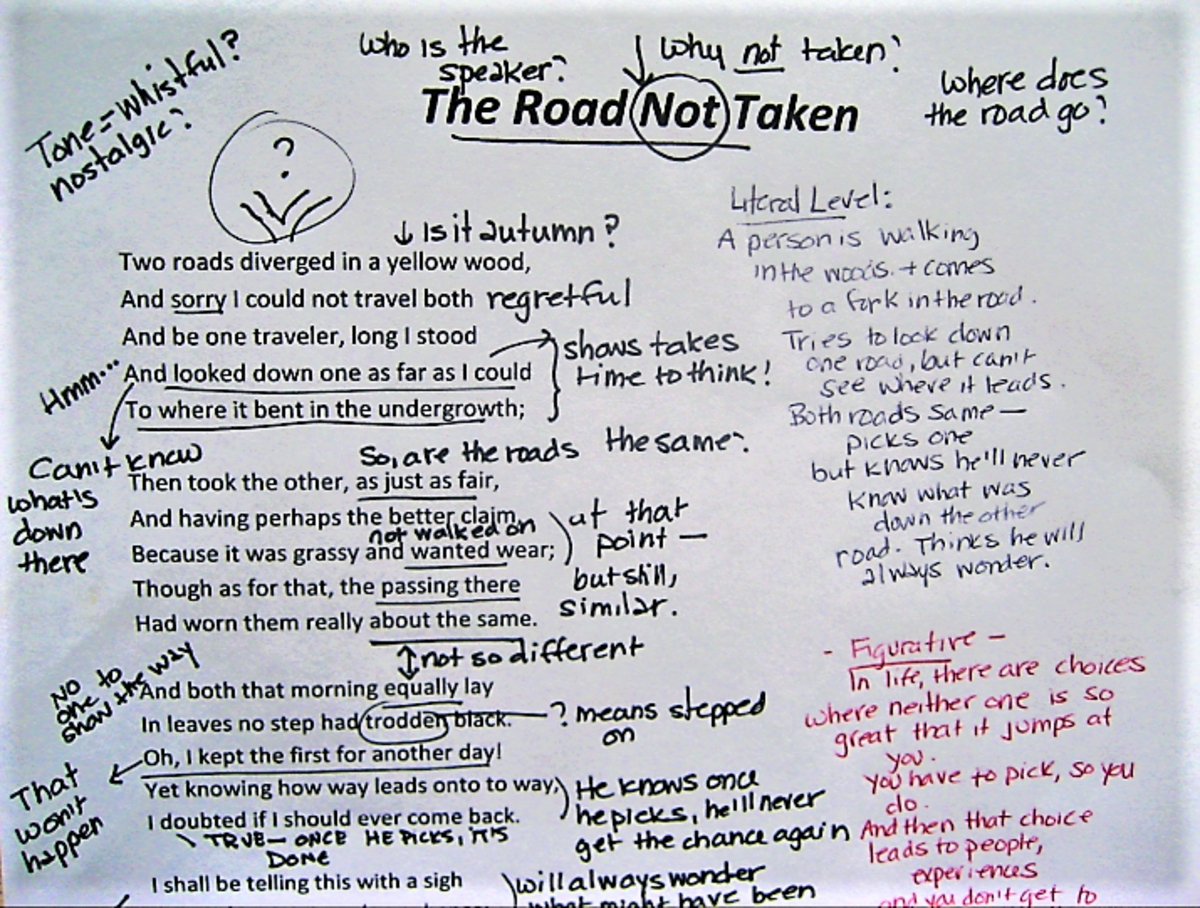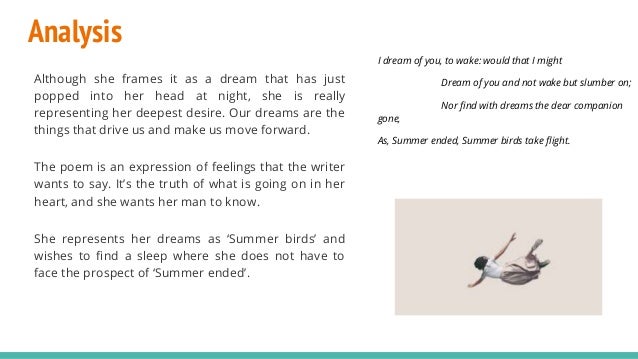【人気ダウンロード!】 it might have been poem analysis 572389
What Might Have Been by Hazel Lee I held a moment in my hand, Brilliant as a star, The poem is basically stating that there are many moments in life that are opportunities for us to capture yet we let go of them The poet suggests that we should capture all the opportunities we have because we won't know what you will miss until it is goneIt might have been otherwise I ate cereal, sweet milk, ripe, flawless peach It might have been otherwise I took the dog uphill to the birch wood All morning I did the work I love At noon I lay down with my mate It might have been otherwise We ate dinner together at a table with silver candlesticks It might have been otherwise I sleptHe does, who could achieve

Poetic Structure Beginnings Endings Caesura Enjambment Ppt Download
It might have been poem analysis
It might have been poem analysis-He only might who is We will do what we could do Do not dream Chance leaves a hero, all uncrowned to grieve I hold, all men are greatly what they seem;He does, who could achieve




Poetry Analysis Links Poetry Analysis Analysis Poetry
He only might who is We will do what we could do Do not dream Chance leaves a hero, all uncrowned to grieve I hold, all men are greatly what they seem;He only might who is We will do what we could do Do not dream Chance leaves aDo not say, 'It might have been, had not this, or that, or this' No fate can keep us from the chosen way;
Thank you for the kind words regarding my poem, "What Might Have Been" I have reached an age where I find myself thinking about what might have been if I had made decisions other than the ones I made That said, I must admit I have been blessed in so many ways in spite of the stupid things I did in my youth No doubt about it, God is goodGod pity them both!A LitCharts expert can help "Out, Out" is a poem by American poet Robert Frost, published in Frost's 1916 collection Mountain Interval and based on a true incident that happened to Frost's friend's son The poem is set in rural Vermont, where a young boy cutting wood with a buzz saw is called in for "supper" by his sister
The analysis of literary devices explains the hidden meanings of a literary text or a poem The use of literary devices is intended to bring richness and clarity to the text with different meanings The Road Not Taken by Robert Frost is also filled with important undertones with the following literary devices Metaphor There are many metaphors in the poem like road, fork in the road and 'It might have been, had not this, or that, or this' No fate can keep us from the chosen way; We will be what we could be Do not say, "It might have been, had not this, or that, or this" No fate can keep us from the chosen way;




Poem Analysis The First Day At School By Roger Mcgough Gcse English Marked By Teachers Com




12 Literary Devices In Poetry Identifying Poetic Devices Writers Com
This is an analysis of the poem It Might Have Been that begins with We will be what we could be Do not say, 'It might have been, had not this, or that, or this'He only might who is We will do what we could do Do not dream Chance leaves a hero, all uncrowned to grieve I hold, all men are greatly what they seem;Favored tree either side of the river, with chains of bone and lace of skin the river's wind made shiver Sat under them both, one in December, one in July, in diametrical seasonal airs, and once arrived home, as I remember, with a thin white fish rib lodged in my hair Source Poetry (December 19) angleleft




How To Analyse A Poem For Exams Or Pleasure Owlcation




4 1 Final Project Milestone Two Linguistic Principles Analysis Running Head Final Project Studocu
This is an analysis of the poem "It Might Have Been" that begins with We will be what we could be Do not say, "It might have been, had not this, or that, or this"For us all some sweet hope lies Deeply buried from human eyes;The life and works of Percy Bysshe Shelley exemplify English Romanticism in both its extremes of joyous ecstasy and brooding despair Romanticism's major themes—restlessness and brooding, rebellion against authority, interchange with nature, the power of the visionary imagination and of poetry, the pursuit of ideal love, and the untamed spirit ever in search of freedom—all of these




Out Out Poem Summary And Analysis Litcharts



2
He always climbs who might I do not like the phrase "It might have been!" It lacks force, and life's best truths perverts For I believe we have, and reach, and win, Whatever our deserts Analysis, meaning and summary of Ella Wheeler Wilcox's poem "It Might Have Been" Do you have any comments, criticism, paraphrasis or analysis ofHe does who could achieve We will climb where we could climb Tell me not Otherwise Poem by Jane Kenyon Read Jane Kenyon poemI got out of bed on two strong legs It might have been




Top 10 Elizabeth Barrett Browning Poems Every Poet Lover Must Read



Poem Analysis Storyboard Af Jcoccia21
Maud Muller Print shows Maud Muller, John Greenleaf Whittier's heroine in the poem of the same name, leaning on her hay rake, gazing into the distance Behind her, an ox cart, and in the distance, the village "Maud Muller" is a poem from 1856 written by John Greenleaf Whittier (1807–12) It is about a beautiful maid named Maud MullerA dramatic monologue, the poem's speaker recounts having to kill a man in war with whom he had found himself "face to face" Talking casually throughout, the speaker discusses how this man could easily have been his friend, someone he might have, under different circumstances, had a drink with in an "ancient inn"In other words, the poem doesn't open on the most hopeful of notes Looks like ol' TS is picking up where the brutal dreariness of "The Waste Land" left off At least for now Lines 610 What might have been is an abstraction Remaining a perpetual possibility Only in a world of speculation




I Dream Of You To Wake Poem Analysis



Song Of Myself Poem Analysis Dentalimplantsurgery Com Custom Academic Help



コメント
コメントを投稿